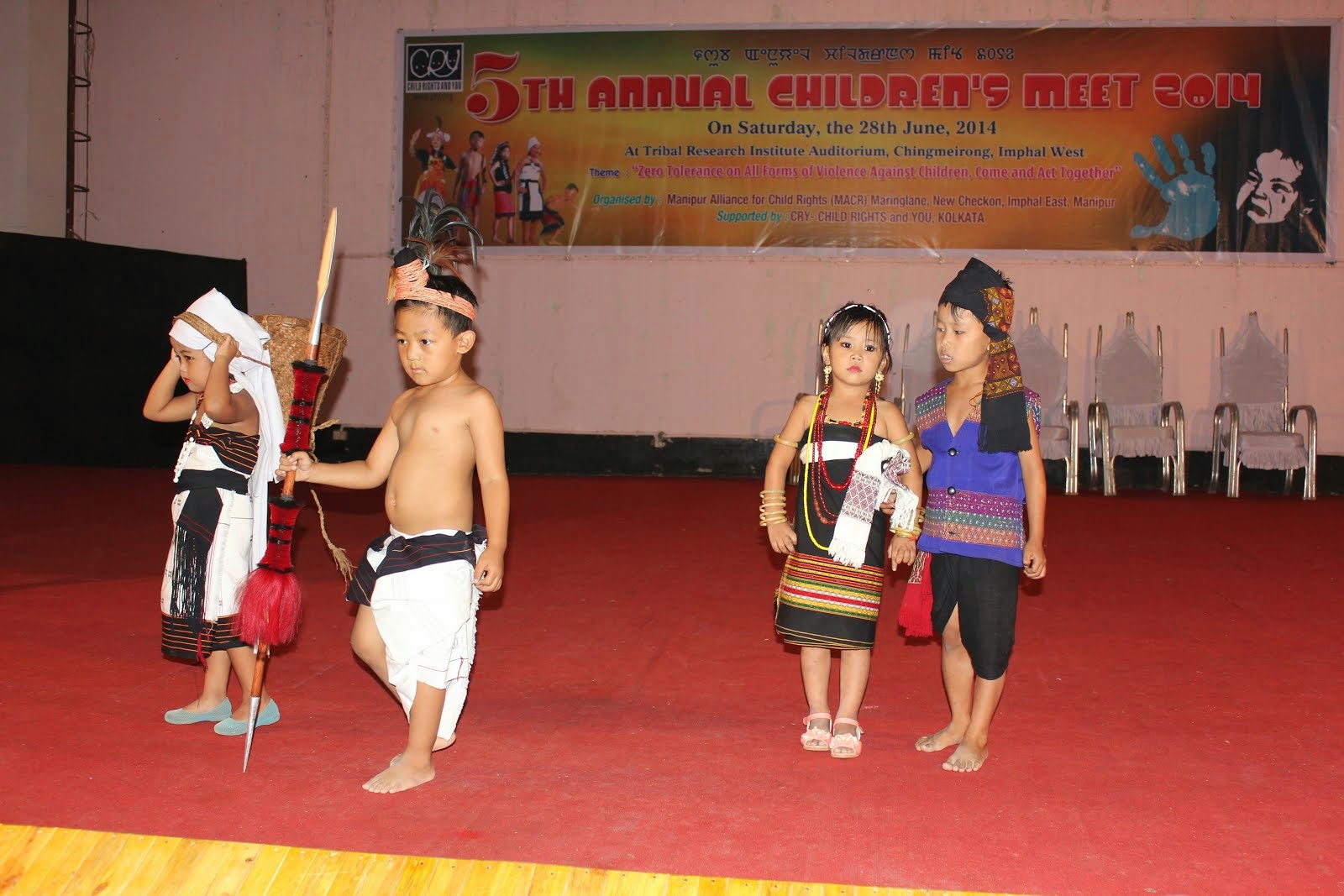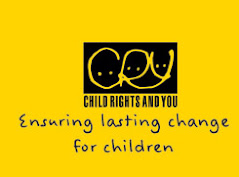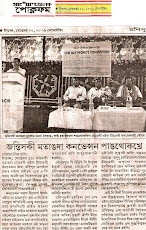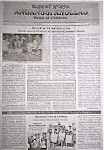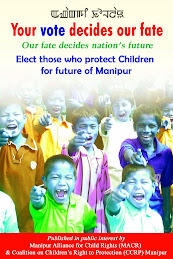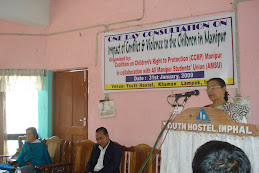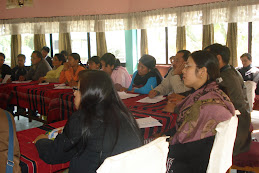IMPHAL, Oct 25 : The National Human Rights Commission (NHRC) has recommended a total monetary relief of Rs 32 lakh as compensation to be paid by the State Government to the families of victims of human rights violation in six cases of death in police/security forces action in Manipur.
According to the Commission's recommendation, the State Government is to compensate Rs 5 lakh each to the families of Khangenbam Priyokumar, Sorokhaibam Nehru, Chahotiangbao Abonmei alias Chahotbao, Khumbongmayum Orshonjit, Thangjam Thoithoi alias Anilkumar and Md Razzak Khan and Rs 2 lakh to the family of Mani Devi.
The Commission is also set to take up a suo moto case against the State Government for imposing restrictions on people willing to meet Irom Chanu Sharmila.
This was stated by NHRC Member Justice Cyriac Joseph during a press conference conducted at Classic Hotel on the concluding day of a camp sitting of the State today.
Cyriac Joseph said that NHRC Special Rapporteur Anil Pradhan was not allowed to meet Sharmila in August this year.
Expressing serious concern over the repressive response of the State Government on similar requests from the representatives of other organisations as well, Cyriac Joseph questioned whether NHRC representatives were taken as security threats to Sharmila.
On the concluding day of the camp sitting, the Commission members interacted with the representatives of different NGOs.
The NGOs raised issues like AFSPA, illegal drug trade with the involvement of police and security forces, harassment of human rights defenders by police, plight of HIV positive patients, violence against women, child trafficking, restitution, rehabilitation and compensation for the families of victims of extra-judicial killings and monitoring of flagship programmes etc.
Apart from pointing out specific instances of human rights violations, the NGOs also made various suggestions to remedy the problems.
Later, the Commission held discussions with the senior officers of the State Government including Chief Secretary, DGP, DMs, SPs and other senior civil, police and jail officers.
During the meeting, issues like extra judicial killings, PDS, health and medical facilities in the State, Loktak lake, prison reforms, human rights education at the State level, intimation about deaths in police/judicial custody within 24 hours of occurrence as per guidelines of the NHRC, intimation about death in police encounter within 48 hours as per guidelines of the NHRC, intimation about death in State Government Homes/Juvenile Homes/Probation Homes; timely submission of the legible copies of the reports by the authorities, delay in submission of compliance reports and non-registration of FlRs by the police in time.
The Commission also discussed issues raised by the NGOs during interaction with the officers. The Commission has also issued notices under section 18 of the Protection of Human Rights Act to the State Government to show cause as to why monetary relief should not be recommended to be paid to the next of kin of the deceased persons in nine cases in which violation of human rights of the victims has been, prima facie, established.
Three cases have been closed on receipt of proof of payment of compensation of Rs 17 lakhs, recommended by the Commission. Another case has also been closed on compliance of the recommendation of the Commission to the State Government for providing appointment on compassionate grounds to the wife of the deceased, killed in an encounter with the police.
The State Government has also been asked to submit reports within four to six weeks in cases where the recommendations of the Commission are reportedly pending for decision of the State Cabinet for a considerable time. On the second day of the camp sitting yesterday, the commission took up a total number of 46 cases in its day long sitting, four in Full Commission, 22 in Division Bench-l and 20 in Division Bench-ll. These cases include the matters pertaining to Loktak Lake and Churachand-pur District Hospital in which the Commission has recommended investigation of these matters by the State CBCID. Senior Civil and police officers including the Chief Secretary and DGP appeared before the Commission.
Besides, a number of family members of the victims of the cases taken up by the Commission appeared and submitted their grievances.
On the opening day of its three day visit to the State on October 23, a team of the Commission comprising Justice Cyriac Joseph and Satyabrata Pal, Members, Kanwal jeet Deol, Director General (Investigation), Anil Pradhan, Special Rapporteur, AK Parashar, Joint Registrar (Law) and other officers visited Jawahar Lal Nehru Institue of Medical Sciences to meet human rights activist Irom Sharmila, who has been on an indefinite fast demanding the repeal of Armed Forces Special Powers Act (AFSPA). A team of the Commission headed by its Chairperson Justice KG Balakrishnan and comprising Justice Cyriac Joseph and Satyabrata Pal, Members, Kanwaljeet Deol, Director General (Investigation), Anil Pradhan, Special Rapporteur, AK Parashar, Joint Registrar (Law) and other officers also visited District Hospital, Churachandpur.
The members of the team expressed serious concern over the sorry state of affairs in the hospital. They were particular disturbed that medicines had not been supplied to the hospital or distributed to patients for a year and a half. They were also deeply concerned by the fact that essential and costly diagnostic equipment was not functional or could not be used in the absence of technicians.
The delegates also visited Loktak lake to assess the condition of the lake and the problems of people living in the surroundings of the Lake.
Ibobi Singh, Project Director of LDA briefed the delegation on the steps taken by the Government for improvement of the lake.
Prior to this camp sitting, a two member team of the Commission comprising AK Parashar, Joint Registrar (Law) and Sonali Huria, Research Consultant visited Manipur to collect data on various Central State Government sponsored flagship programmes. In their report, they have highlighted poor infrastructural facilities including non-availablity of electricity, lack of toilet and kitchen facilities, non-availability of safe drinking water, long delay in payment of salaries to workers in Anganwa- dis, absenteeism of doctors on duty in primary health centres/hospitals, delay in pay- ment of salaries of PHC/hospital Staff and absenteeism of teachers and high rate of dropouts in primary schools and long delay in supply of rations for mid-day meals.

